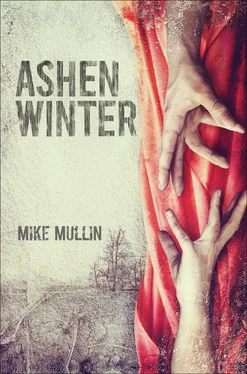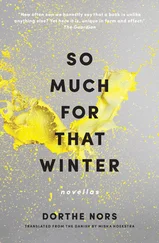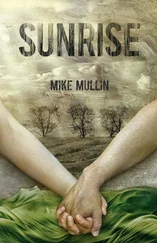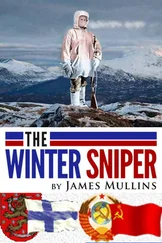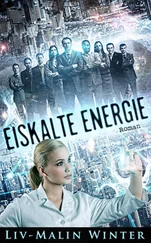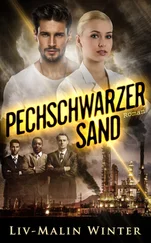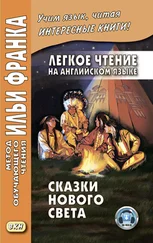Mike Mullin - Ashen Winter
Здесь есть возможность читать онлайн «Mike Mullin - Ashen Winter» весь текст электронной книги совершенно бесплатно (целиком полную версию без сокращений). В некоторых случаях можно слушать аудио, скачать через торрент в формате fb2 и присутствует краткое содержание. Жанр: sf_postapocalyptic, на английском языке. Описание произведения, (предисловие) а так же отзывы посетителей доступны на портале библиотеки ЛибКат.
- Название:Ashen Winter
- Автор:
- Жанр:
- Год:неизвестен
- ISBN:нет данных
- Рейтинг книги:5 / 5. Голосов: 1
-
Избранное:Добавить в избранное
- Отзывы:
-
Ваша оценка:
- 100
- 1
- 2
- 3
- 4
- 5
Ashen Winter: краткое содержание, описание и аннотация
Предлагаем к чтению аннотацию, описание, краткое содержание или предисловие (зависит от того, что написал сам автор книги «Ashen Winter»). Если вы не нашли необходимую информацию о книге — напишите в комментариях, мы постараемся отыскать её.
Ashen Winter — читать онлайн бесплатно полную книгу (весь текст) целиком
Ниже представлен текст книги, разбитый по страницам. Система сохранения места последней прочитанной страницы, позволяет с удобством читать онлайн бесплатно книгу «Ashen Winter», без необходимости каждый раз заново искать на чём Вы остановились. Поставьте закладку, и сможете в любой момент перейти на страницу, на которой закончили чтение.
Интервал:
Закладка:
I groaned, thinking about what she was doing to the edge of the knife. We didn’t have a sharpening stone. But saying anything was useless-getting between Darla and a project was as futile as standing on a railroad track hoping to stop a train with an upraised palm.
So I watched while Darla shaped the sheet metal into a rough, square pan. Each corner had a triangular fold, and the top was sharp and ragged, but it looked like it would hold water. “Tada,” she said. “No more eating snow.”
“That’s great. But will the hatchet still cut wood?”
Darla picked it up and looked at the edge. Even by firelight, the nicks and dull spots were obvious. “We’ll look for a stone to sharpen it on tomorrow.”
I shrugged and loaded the balls of snow into the pan. Darla set the pan at the edge of the fire. Then she plucked the bottle of whisky from the floor.
Darla sniffed the whisky and wrinkled her nose. She lifted the bottle to her lips and took a huge swig.
“Ugh, that’s disgusting,” she said, coughing as she passed the bottle to me.
Disgusting or not, I couldn’t let Darla show me up. I raised the bottle to my mouth and knocked back as much as I could swallow at one gulp. It was horrid-a smell like paint thinner and a sharp taste so strong it burned my throat. I bent double, gasping and coughing, trying to clear the alcohol sear from my nostrils. Once that passed, though, it tasted kind of good for a few seconds, sort of like smoke from a campfire. But the pleasant taste passed, too, and then I was left with nothing but the chemical aftertaste of the cheap whisky.
“Maybe this stuff does have calories, but I don’t think I want to drink any more,” I said.
“Me, either,” Darla replied. “Maybe we can find some real food tomorrow. Save the rest of the alcohol to use as an antiseptic.”
“Makes sense. Let me see your hand.” I gently stripped off the makeshift bandage from Darla’s palm. The wound looked better-a little puffy and swollen, but there were no red streaks, and it didn’t smell bad. I washed it as best I could with whisky, then rebandaged it, using more cloth torn from my undershirt.
“Your turn.” Darla took the whisky bottle and went to work on my side. It looked a lot better, the red streaks had mostly faded, and it didn’t smell like roadkill anymore. By the time Darla finished washing and bandaging me, we’d torn up more than half my T-shirt. All that remained were the shoulders, neck, and a ragged fringe of cloth hanging partway down my chest.
“If you keep using my clothes for bandages at this rate, I’ll be naked in a few days,” I said.
Darla laughed. “Fine by me. I’ll enjoy the naked boyfriend show. Might be a bit cold for you, though.” She pulled the makeshift pan away from the fire. All the snow had melted.
“Yeah, maybe I’ll wait until we get somewhere warmer before I let you rip all my clothing to rags.”
“Deal.”
We waited a bit for the pan to cool, then carefully sipped warm water from its sharp edges. “We’ve got six bags of wheat. Maybe we should cook one?”
“We don’t need to,” Darla said. “We should make it to Worthington the day after tomorrow.”
“Better to keep up our strength. How do you cook wheat, anyway?”
Darla shrugged. “Boil it like corn? I don’t know.”
I refilled the pan with snow. When that melted, I dumped a bag of wheat in. While I waited for that to boil, I whittled flat spots on a couple of sticks-improvised spoons.
I had no idea how long to cook it. After about fifteen minutes of boiling, I scooped out a few kernels with my stick. They were so hard that they were difficult to chew, and they had an unpleasant, hairy texture.
“How is it?” Darla asked.
“Not good.”
She frowned. “Let’s get some sleep. Figure it out in the morning.”
I pulled the pan off the fire and started getting ready for bed. We hadn’t had any Cipro yet that day, so I split a tablet and handed half of it to Darla. She choked it down with a grimace.
The floor beside the fire was hard, but we were so tired it didn’t matter. I wrapped Darla up in a hug and kissed her goodnight. We slept like that, our limbs entangled, warmed by each other and the comfort of our hard-won fire.
Chapter 25
The next morning I tried the wheat again. The pan was warm from sitting by the fire all night. Soaking overnight had transformed the kernels-they were soft and delicious. Darla and I quickly ate them all.
When we’d finished breakfast, I packed the makeshift pan, the bottle of whisky, and the remaining bags of wheat under my coat. I cinched the drawstring around my waist extra-tight so everything would stay put. Darla carried the fire-by-friction set under her jacket, the bow sticking out at her collar. We looked lumpy and awkward, strange aliens trudging across the snowscape. The pan rubbed uncomfortably as I moved, its edges digging into my chest through the coveralls and overshirt.
The countryside reinforced my feeling of strangeness. Last year, more than half of the Iowa farmsteads had been occupied. Many of the unoccupied ones had collapsed under the weight of the ash and snow, but very few had burned. Now all of them were abandoned and more than half had burned. Often all that marked a former farm was a grain silo and some charred rubble. Where had all the people gone?
A faint stench of charcoal, melted plastic, and sulfur followed us along the road. The burnt-out buildings made the countryside seem more desolate. The only break in the solitude came late that morning. We heard an engine in the distance and rushed to the side of the road, thinking we’d hide. But the noise faded, and we never saw the vehicle that made it.
Iowa had been a vibrant place just ten months ago. Even on the back roads, you could always see signs of civilization, of people. Now. . nothing. What kind of life could Darla and I hope for in this desolation? I took her hand and held it for a while as we walked.
I was hungry despite the half-pan of boiled wheat I’d eaten that morning. The hunger made us tired. Our steps slowed as the day wore on, and we barely talked.
About an hour before nightfall, we passed a whole series of burnt houses. All that remained were a few scarred and blackened brick walls and chimneys. We trudged up a slight rise. At the top perched a dark-blue, cylindrical water tower overlooking the town. CASCADE, it read in huge white block letters. Below the town’s name, someone had spray-painted a crude drawing of a woodpecker in garish red and neon blue. The woodpecker stood on its hind feet, wings thrust into the air some twenty feet above his head. Fat red boxing gloves capped each of the woodpecker’s upraised wings.
“Excellent,” Darla said. “Cascade is only ten miles from Worthington. But what is that drawing on the water tower?”
“Woody Woodpecker,” I said.
“Woody what?”
“You know. The cartoon.” I tried to make the Woody Woodpecker sound, but it didn’t come out too well.
She looked at me like I’d lost my mind.
“You’ve never heard of Woody Woodpecker?” I asked.
“No.”
“Country people.” I shook my head in mock seriousness. “They lack cultural awareness.”
Darla slugged my shoulder. “Well, if that’s a woodpecker, it’s got a huge evolutionary advantage.”
“What’s that?”
“It’s so ugly, trees will die at the sight of it.”
“Yeah, it is ugly. I wonder why someone bothered painting it up there. Must have taken a lot of spray paint to make it that big.”
As we got closer, we could see beyond the water tower. There was an open snowfield boxed in by two small apartment buildings and a massive metal shed. The shed’s sliding door was open, and we could see a fire flickering within.
Читать дальшеИнтервал:
Закладка:
Похожие книги на «Ashen Winter»
Представляем Вашему вниманию похожие книги на «Ashen Winter» списком для выбора. Мы отобрали схожую по названию и смыслу литературу в надежде предоставить читателям больше вариантов отыскать новые, интересные, ещё непрочитанные произведения.
Обсуждение, отзывы о книге «Ashen Winter» и просто собственные мнения читателей. Оставьте ваши комментарии, напишите, что Вы думаете о произведении, его смысле или главных героях. Укажите что конкретно понравилось, а что нет, и почему Вы так считаете.
